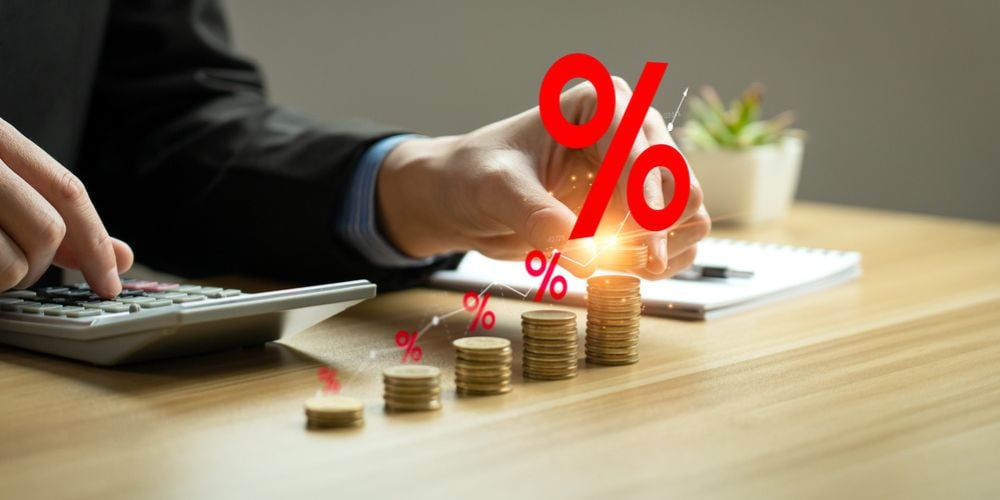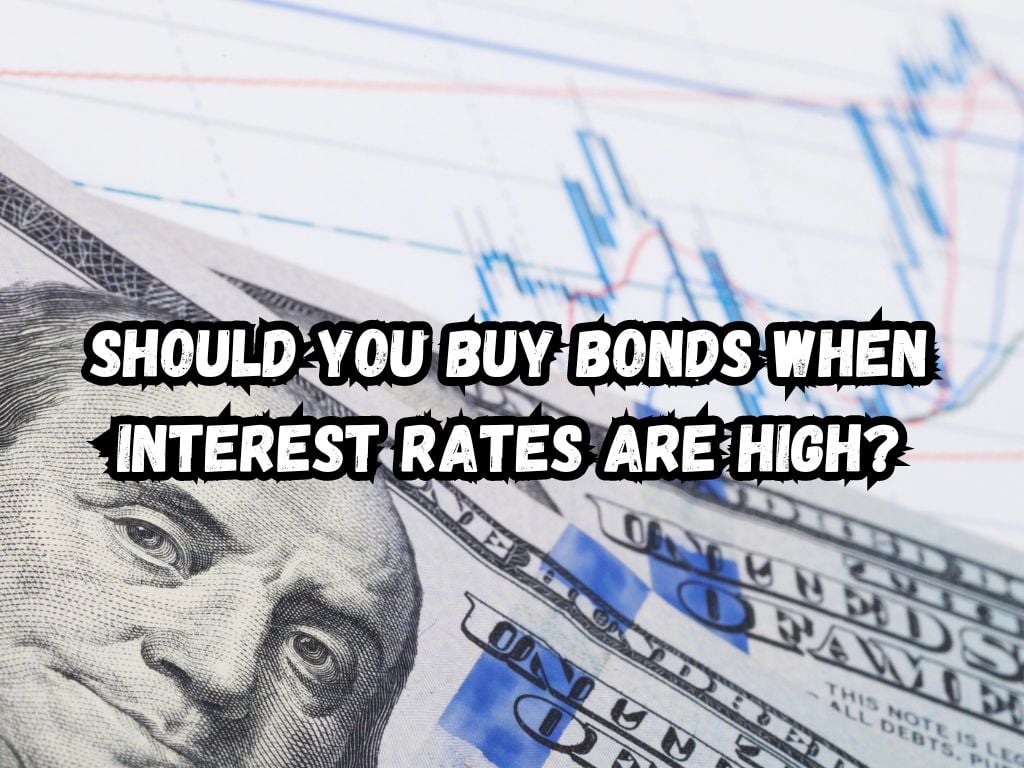Deciding on where to invest money can be a tough call. In the world of investing, bonds and interest rates share a close bond. Interest rates significantly impact the bond market.
But what happens when interest rates are high? Should you buy bonds when interest rates are high? This article aims to uncover whether buying bonds when interest rates are high is a smart move or not.
Understanding Bonds and Interest Rates
Let’s set the stage by defining bonds and interest rates. Bonds are a type of loan an investor gives to a bond issuer, usually a government or corporation. They use these loans to finance projects or operations.
On the other hand, interest rates are what banks charge to lend money or pay to those saving money. They play a crucial role in the economy by influencing borrowing costs and savings’ returns.
Bonds and interest rates go hand in hand. When interest rates rise, bond prices fall. Conversely, when interest rates go down, bond prices go up. It’s a simple seesaw relationship that can help investors like you make smart financial choices.

Should You Buy Bonds When Interest Rates Are High?
When interest rates are high, the bond prices in the market can slide. This is because new bonds come to market with higher coupon rates, reducing the appeal of existing bonds.
Yet, a bond bought during high interest rates shows promise of a good yield, as new bonds pay out more. Now, let’s split bonds into two categories: long-term and short-term.
When interest rates are high, long-term bonds usually suffer more compared to their short-term counterparts. This is because they lock in interest rates for a lengthy period.
Pros of Buying Bonds When Interest Rates Are High
Despite certain risks, buying bonds when interest rates are high can offer some benefits. One of the main pros is the higher yield on new investments.
Higher yields mean better returns. Interest paid out on these bonds can also serve as a hedge against inflation. Besides, you can reinvest the interest income into new bonds that offer high yields.
Cons of Buying Bonds When Interest Rates Are High
Although buying bonds during high interest rates can offer better yields, it comes with inherent risks. Current bond holders face a dip in the market price of their bonds due to rising interest rates.
Further, an increase in interest rates can prompt a bond’s price to fall even more. Lastly, by locking in money into bonds, you might miss out on other promising investment opportunities.
Strategies for Investing in Bonds During High-Interest Rate Periods
There are strategies to mitigate risks and reap benefits when investing in a high-interest-rate environment. One method is to ladder your bond investments. This entails buying bonds that mature at different times. Such a move can provide liquidity and flexibility.
Another approach is diversification. By putting your money into various kinds of bonds of different term lengths, you spread the risk.
Finally, think about which bonds are less affected by rate fluctuations. Some bonds, like floating-rate bonds are less rate-sensitive.
The Role of Duration in Bond Investment Choices
Duration is a bond investment’s sensitivity factor to interest rate changes. A bond with a longer duration is more sensitive to interest rate changes than a bond with a shorter one.
If you plan to hold a bond until maturity, the duration of a bond can be a vital factor to consider. Knowing this can help you balance risk and return.

Pro Tips for Investors
For those looking to invest in bonds when interest rates are high, here are a few recommendations.
First, stay informed about the economic trends that sway interest rates. Second, seek advice from financial professionals. Customized investment plans can align better with your investment goals and risk profile.
FInally, remember to routinely review your investment portfolio to adjust strategies as the market sways.
Frequently Asked Questions
How do I know if it’s the right time to buy bonds?
There is no set time to buy bonds. It’s a decision based on numerous factors like bond yields, bond prices, interest rates, and your personal financial goals.
Can high-interest rates benefit long-term bond investors?
High interest rates can benefit long-term investors, provided you’re confident the rates will drop in the future. This is because a bond’s price increases when interest rates decrease, resulting in capital appreciation of long-term bonds.
Should I sell my current bonds if I anticipate a rise in interest rates?
If you foresee the rates going up, holding onto your bond might mean a drop in its market price. But if your goal is to retain the bond until maturity, market price fluctuations might not affect you.
How can I protect my bond investments against rising interest rates?
Tools like bond laddering and diversifying your portfolio can help. Also, considering bonds less sensitive to interest rate changes like floating-rate bonds can offer protection against rising rates.
Conclusion
Should you buy bonds when interest rates are high? It depends. Weighing the pros and cons, understanding how high interest rates affect the bonds, and applying the right investment strategies will guide your decision.
Your personal investment goals and risk tolerance level are the roadmaps to consider.


 Tags:
Tags:










